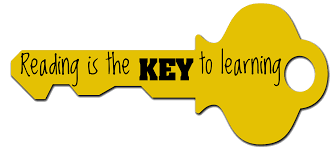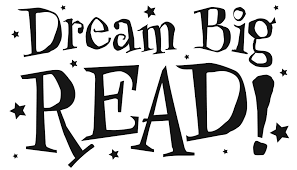From the Counsellor’s Chair
Mrs Good, our School Counsellor, reminds us of the joys and advantages of reading:
‘World Book Reading Day took place on 3rd March 2016 and was the nineteenth year that there has been a World Book Reading Day. It’s the biggest celebration of its kind designated by UNESCO as a worldwide celebration of books and reading and marked in over 100 countries all over the world.
The main aim of the annual World Book Reading Day in the UK and Ireland is to encourage children of all ages to explore the pleasures of books and reading.
Research shows that children need to continue reading even over the holidays so that there is not a falloff in their reading ability when they return to school, which will impact on their self-esteem and confidence. What are the benefits of reading? Here are a few:
Reading exercises the brain and improves memory. A more complex task than, for example, watching television, reading strengthens brain connections and builds new ones as we strive to remember characters, background information, plots, and other details. The more reading you do the more you remember.
Reading improves concentration. It requires sitting still and focus. If done regularly a child develops the ability to do so for longer periods of time.
Children who read often and widely improve at reading. As they improve they become more confident in tackling ever more complex texts and less inhibited about reading out loud.
In our hectic, internet world attention tends to be drawn in different directions at once. This behaviour can cause stress levels to increase and decrease productively. Reading a book helps to centre us, slow us down, be silent and in the moment.
Reading teaches children about the world they live in. It enriches knowledge of people, places and events outside their immediate experience, which can augment subjects taught in school and personal interests. Reading sparks off a curiosity about the world and beyond.
Reading improves a child vocabulary, leads to more highly developed reading skills and improves a child’s ability to write. Whilst absorbing information about things, reading helps children see how to structure sentences and use words and language effectively.
Reading develops a child’s imagination. As we engage in a story we engage with characters, their experiences and feelings, and use these to be curious about how we would act in their situation.
Reading helps children develop empathy as they identify with the characters in a story and their feelings.
Children who read widely tend to do better at school, and not just in language rich subjects such as English and history.
Reading is entertaining. Visit your local or school library and peruse the countless books sitting on shelves waiting to be opened and read. Can’t find the book you want? Many libraries will order in.
If encouraging your child to read is a challenge, the next article will consider ways of minimising this so reading becomes a pleasure rather than a chore. In the meantime, I wish you all a happy and peaceful Easter. Happy reading!’
Categories: Junior Nursery Prep Senior Sixth Form Whole School



